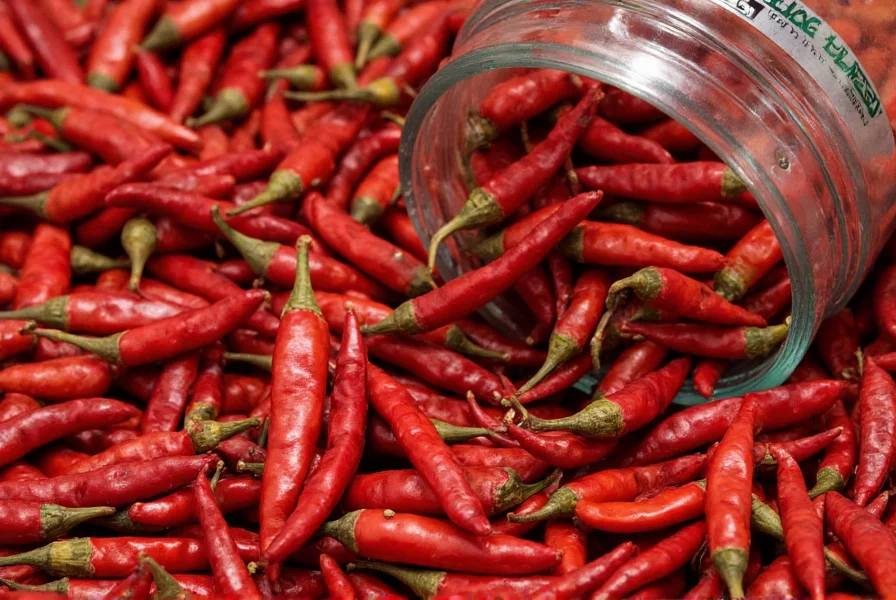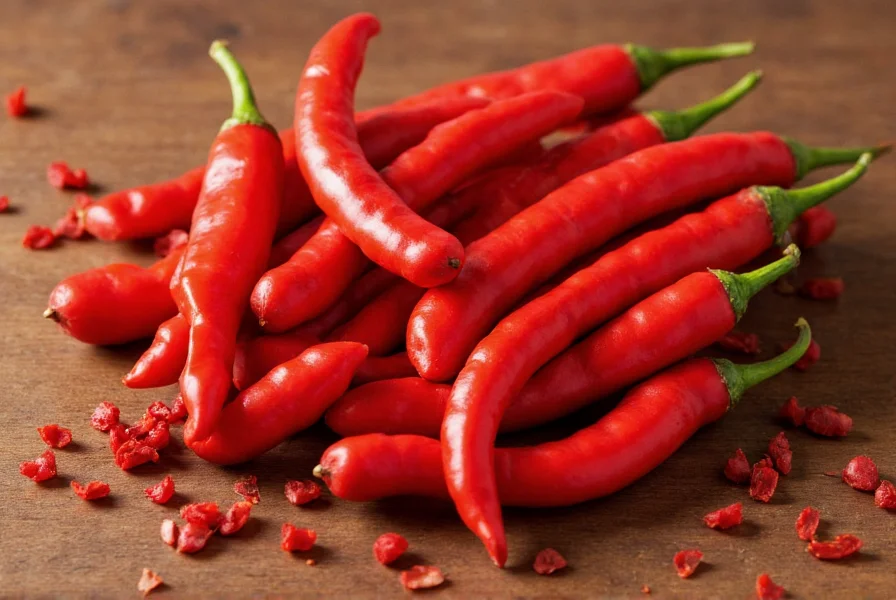Understanding the halal status of common spices like red chili is essential for Muslim consumers navigating modern food choices. This comprehensive guide examines the religious ruling, potential concerns with processed products, and practical verification methods.
Why Natural Red Chili Qualifies as Halal
Islamic dietary laws classify foods as halal (permissible) or haram (forbidden) based on specific criteria. Red chili peppers—whether fresh, dried, or ground into pure powder—originate from Capsicum plants, placing them firmly in the halal category for three fundamental reasons:
- Natural plant origin: Contains no animal derivatives or alcohol-based solvents
- No inherent impurities: Requires no special processing that might introduce haram elements
- Historical consumption: Widely used in Muslim-majority regions for centuries without religious objection
Major Islamic scholarly bodies including the Islamic Food and Nutrition Council of America (IFANCA) and the Halal Food Authority confirm that single-ingredient spices like pure red chili powder automatically qualify as halal without certification.

When Red Chili Products Require Halal Verification
While basic red chili ingredients remain unquestionably halal, processed products demand careful scrutiny. Manufacturers sometimes add:
| Common Additive | Halal Concern | Verification Method |
|---|---|---|
| Anti-caking agents | May contain animal-derived magnesium stearate | Check for "vegetable-based" specification |
| Flavor enhancers | Potential alcohol solvents or non-halal enzymes | Look for halal certification logo |
| Color additives | Carmine (insect-derived red dye) | Verify "natural color" or halal certification |
Products like chili paste, ready-made curry blends, or flavored chili oils often contain multiple ingredients requiring halal verification. The "are dried red chilies halal" question typically arises when consumers encounter processed spice blends rather than pure red chili products.
Practical Guide to Verifying Halal Status
Follow these steps when evaluating red chili products:
- Examine ingredient lists: Pure red chili should list only "red chili peppers" or "capsicum"
- Check for certification logos: Recognized halal symbols from IFANCA, HFA, or local Islamic authorities
- Contact manufacturers: Reputable companies provide halal documentation upon request
- Research processing methods: Ensure no alcohol-based extraction or non-halal equipment contact
When shopping internationally, remember that "red chili halal status" may vary by region. Some countries permit additives forbidden in strict halal standards. The Malaysian Islamic Development Department (JAKIM) maintains particularly rigorous certification protocols worth referencing.
Common Misconceptions About Spices and Halal
Several myths persist regarding spice halal certification:
- Myth: All spices require halal certification
Fact: Single-ingredient spices like pure red chili powder don't need certification - Myth: Red color indicates haram additives
Fact: Natural capsaicin provides red hue without artificial coloring - Myth: Imported spices are automatically non-halal
Fact: Many international producers follow halal protocols for export markets
Understanding these distinctions helps consumers make informed choices without unnecessary restrictions. The question "is red chili powder halal" typically stems from encountering processed products rather than pure spice.
Practical Recommendations for Muslim Consumers
Implement these strategies for confident spice selection:
- Maintain a list of trusted halal-certified spice brands
- Choose whole dried chilies when possible for maximum transparency
- Grind your own chili powder at home to ensure purity
- Consult local Islamic centers for region-specific guidance
- Use apps like HalalTrip or Muslim Pro for product verification
When traveling or shopping in non-Muslim majority areas, remember that "checking halal status of spices" requires extra diligence. Supermarket generic brands often lack clear labeling, making direct manufacturer contact essential.
Frequently Asked Questions
Are dried red chilies halal without certification?
Yes, pure dried red chilies require no halal certification as they're naturally halal. The prohibition against certification applies only to single-ingredient plant products without processing additives. You can safely use dried red chilies from any source provided no additional ingredients appear on the label.
Does red chili powder always need halal certification?
Pure red chili powder made from 100% ground chilies doesn't require certification. However, many commercial products contain anti-caking agents like silicon dioxide or magnesium stearate. When purchasing pre-ground powder, look for "no additives" labeling or halal certification to ensure compliance with strict halal standards.
Can red chili contain haram ingredients?
Naturally, no. But processed red chili products sometimes include haram elements like carmine (insect-derived dye), alcohol-based flavor extracts, or animal-derived anti-caking agents. Always check ingredient lists for pure red chili products, and verify certification for processed items like chili paste or seasoning blends.
How do I verify halal status when traveling?
When traveling, use halal verification apps, contact local mosques for recommendations, and look for internationally recognized halal logos. For red chili specifically, purchasing whole dried peppers from markets rather than pre-ground powder reduces certification concerns. Many Middle Eastern and South Asian grocery stores maintain halal-compliant spice sections even in non-Muslim countries.
Does cooking with red chili affect a dish's halal status?
No, using pure red chili in cooking maintains a dish's halal status. The concern arises only when processed chili products contain non-halal additives. When preparing meals, ensure all other ingredients comply with halal requirements, as the permissibility of the entire dish depends on all components meeting Islamic dietary standards.











 浙公网安备
33010002000092号
浙公网安备
33010002000092号 浙B2-20120091-4
浙B2-20120091-4